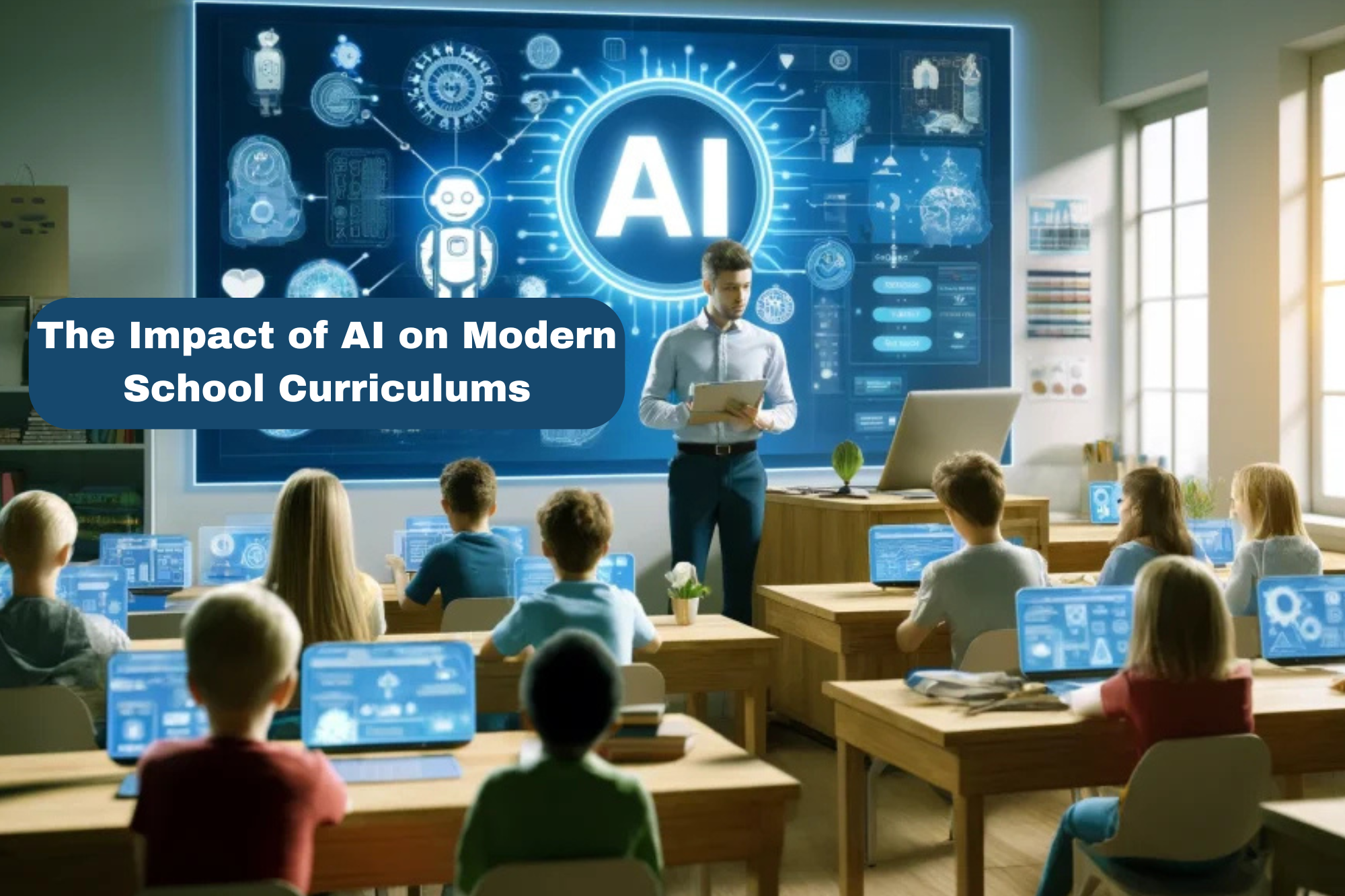Share this Post
Artificial Intelligence (AI) is revolutionizing education by transforming the way students learn and teachers instruct.
As AI technology advances, schools worldwide are integrating AI into their curriculums to enhance learning outcomes, improve student engagement, and prepare learners for the future job market.
This article explores the impact of AI on modern school curriculums and how it is shaping education for the next generation.
1. AI-Integrated Learning Systems
AI-powered educational tools are being incorporated into curriculums to provide personalized learning experiences.
These tools analyze students’ strengths and weaknesses, adapting lessons accordingly. Some key AI-driven learning methods include:
- Adaptive Learning Platforms: Programs like Khan Academy and DreamBox tailor content to students’ individual needs.
- AI Tutors: Virtual assistants like Squirrel AI provide real-time guidance to students.
- Automated Assessments: AI enables quick evaluation of student performance, offering instant feedback.
2. Preparing Students for AI-Driven Careers
Modern curriculums are evolving to include AI-focused subjects to prepare students for the future workforce. Some essential AI-related courses include:
- Coding and Programming – Teaching languages like Python and Java to build AI applications.
- Machine Learning Fundamentals – Introducing students to the basics of AI algorithms.
- Ethics in AI – Exploring the ethical implications of AI technology.
- Data Science and Analytics – Providing insights into data-driven decision-making.
3. AI in Special Education
AI is significantly improving education for students with disabilities by offering:
- Speech-to-Text Software – Helping students with hearing impairments.
- AI-Powered Reading Assistants – Supporting dyslexic learners.
- Personalized Learning Plans – Adapting lessons for students with autism and other learning disabilities.
4. AI and Teacher Support
AI is not only benefiting students but also assisting educators in streamlining their tasks, including:
- Automated Grading – Reducing teachers’ workload through AI-driven assessments.
- Smart Lesson Planning – AI tools help design effective and engaging lesson plans.
- Classroom Management Tools – AI can analyze student behavior patterns to help improve classroom interactions.
5. Ethical Concerns and Challenges
While AI in education offers numerous benefits, it also raises concerns such as:
- Data Privacy – Ensuring student data is protected from misuse.
- Bias in AI Algorithms – Preventing discrimination in AI-driven evaluations.
- Over-reliance on Technology – Maintaining a balance between AI tools and traditional teaching methods.
Conclusion
AI is reshaping modern school curriculums by making education more personalized, accessible, and efficient.
By integrating AI-driven learning systems, schools are preparing students for an AI-powered future while also addressing individual learning needs.
However, it is essential to implement AI responsibly to ensure it enhances education without compromising ethical considerations.
As AI continues to evolve, its role in education will only expand, making it a crucial component of modern learning.





